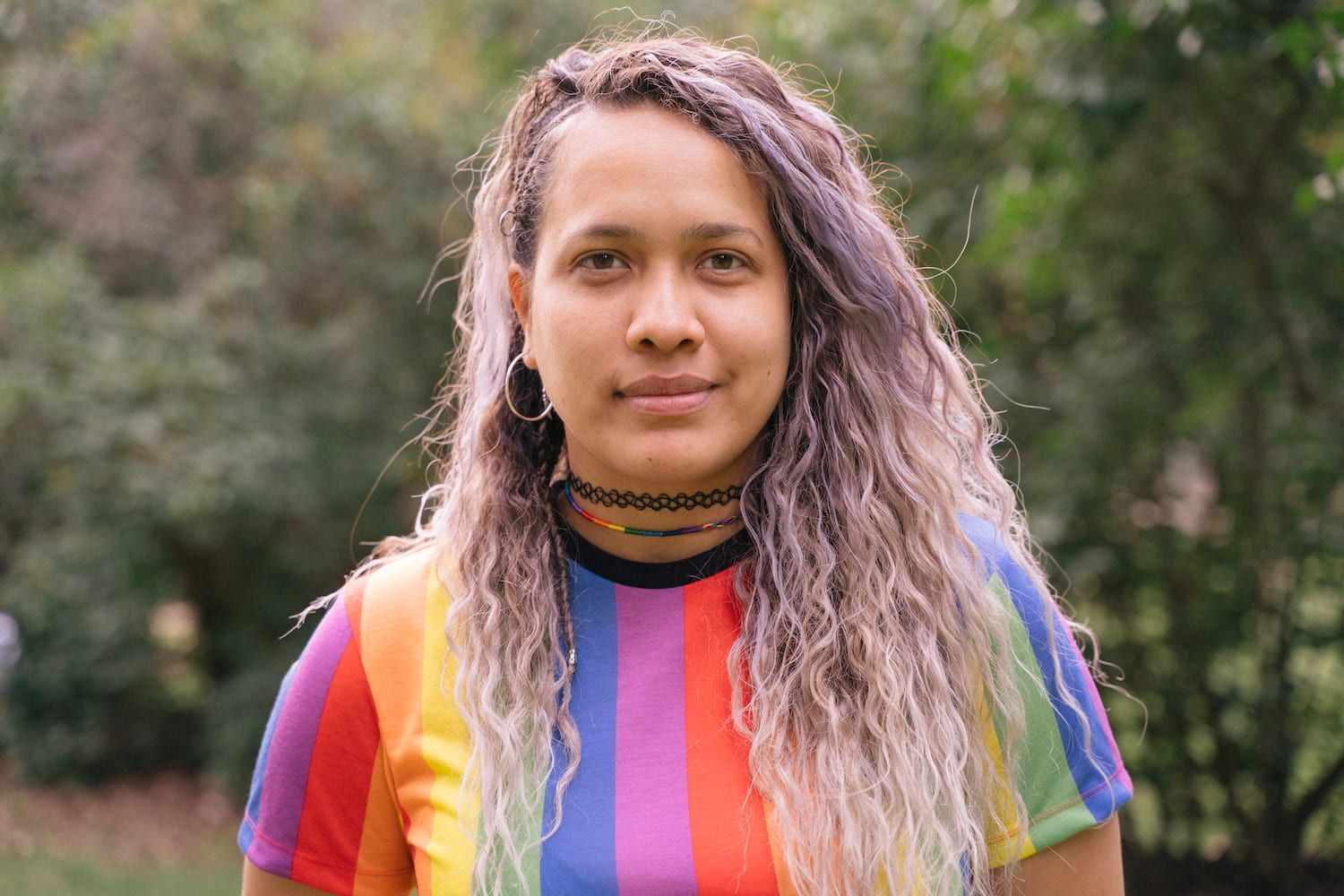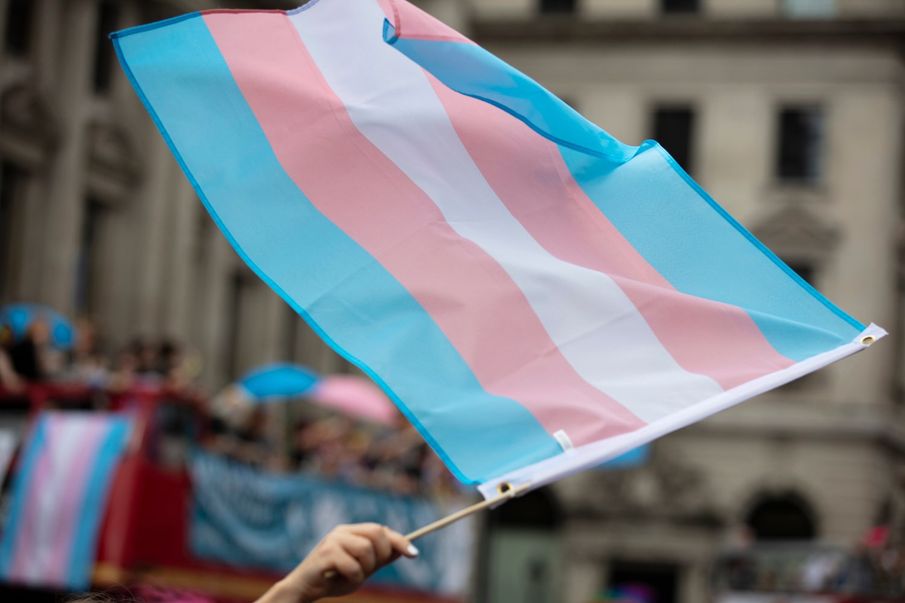Are you a cisgender person unsure of how best to show your support to the trans community? Here are some simple ways you can learn and better your understanding
We’re learning, listening, and playing our part to support members of other communities, reaching across our differences to advocate for important, much-needed change.
If you’re a cisgender person ready to continue speaking up for the lives of others, here are six simple ways to begin your journey as a transgender ally.
Listen and learn
The lives and challenges of trans people are important and deserve to be heard. Transgender people have faced a shocking amount of violence and discrimination historically - and they still do, currently.
Reports on discrimination against transgender people, whether it’s in the workplace, family relations, social situations, or romantic contexts, make for some very hard reading. There is also data that suggests people in the LGBTQ+ community, particularly transgender people, are at a higher risk of developing mental health problems, including eating disorders.
It is our job as allies to teach ourselves about these challenges and injustices, where traditional education fails to.

Want to better your LGBTQ+ education?
- If you’re looking to diversify your bookshelf, here are 15 inspirational and inclusive books to help you learn more about LGBTQ+ history.
- Take a moment to reflect on how far we’ve come with the acceptance and representation of the LGBTQ+ community over recent decades.
- Is someone close to you coming out as transgender? Here’s how you can emotionally navigate the potentially choppy waters, and why it is so important to try to understand their decision.
Know your terms
Words can be violent; many phrases can be seriously hurtful to trans people. Recognise how demeaning the use of terms such as ‘pre-op’ or ‘post-op’ is, as is describing someone that was “born a boy/girl”.
A preferred term is to say that they were “assigned [x gender] at birth,” as this acknowledges the difficult relationship between body and gender. There are also people who live outside the gender binary and don't identify as male or female.
In the following video, Dani, Lindsey, Feng, Francois, and James, discuss what ‘non-binary’ means to them.
It's also important to be sensitive with regards to sexual identity - remember, there is a distinction between sexual identity and gender identity. Just like sexual attraction is a spectrum for cisgender people, the same is true of trans people.
As psychotherapist Noel Bell points out, sexual identity and gender identity can be a huge source of anxiety. It can often be a lonely experience for those struggling with their identities.
“The importance of language is very important when speaking about gender identity. Whilst the old either/or options of ‘male/female’ or ‘straight/gay’ may represent a working model for some of us, for others, a greater degree of nuance and distinction is necessary.”
Ask about preferred pronouns
Gender identities can be highly complex for many individuals, and they’re an extremely personal thing. If you're ever unsure about what pronoun a person would prefer, be sure to ask politely. Part of being a better ally is sometimes making yourself uncomfortable; it is better to ask the question, even if you feel awkward in doing so.
Zach who shared his story with Counselling Directory, recalls his experience: “I was 18 years old when I realised that my life up until that point was a lie. A strong, resonate thought shook me to the core: I don’t want to be a girl anymore.
“Hearing my name, one that I’d been addressed as thousands of times before, made me shudder. Being referred to as “she” or “her” would make me feel sick.”
Getting someone’s pronoun wrong is not simply just misgendering them. It can make them feel alone, invisible, afraid, exhausted, frustrated, or angry. They may have a preference for gender-neutral pronouns, like ze and zir, which would be respectful to use.
As Archie Bongiovanni, co-author of A Quick and Easy Guide to They/Them Pronouns, explains, it’s our responsibility as allies to learn and use whatever pronouns someone asks us to.
“Even if you don’t get it, you should learn how to use pronouns people request because you love them, like them, or want to work with them. Telling someone their pronouns don’t matter is basically telling them they don’t matter.”

Don’t make assumptions
Although we often intrinsically do, we should try not to make assumptions about people. A person’s history, family life and romantic relationships are so unique, we couldn’t possibly understand a person’s life experience just by knowing whether a person is cisgender or transgender.
And, just because a person looks like they've been a particular gender all their life doesn't mean they can't be trans. Equally, just because you've heard one trans person's story, that doesn't mean that's the only narrative there is.
Don’t allow curiosity to get the better of you
As humans, we’re inquisitive by nature. But, it’s important to remember that we don’t need to know the answer to everything, and we don’t need to ask every question that pops into our heads.
If someone wants to tell you about steps they've taken (or are still taking), whether that’s hormones, surgery, or something else, that’s up to them. You can let them know that they can talk to you if they want to - being a good ally means being a good listener.
Fight in solidarity with trans people
Of course, it's necessary that, as allies, we step up to the plate to change attitudes, particularly if we witness hate speech or acts of oppression.
But remember, if you identify as cisgender, this is not your fight to lead. Attempting to take charge against trans discrimination denies their capacity to fight for themselves. We fight with trans people, not for them.
Please remember that this is not an exhaustive list. There isn’t a simple tick-list you can use to combat trans discrimination. There are so many ways that you can commit to change and show your allyship.
We have to keep holding ourselves and our communities accountable, repeating these actions, and continuing to do the work that is required to make the world a safe space for everyone in it.


Comments